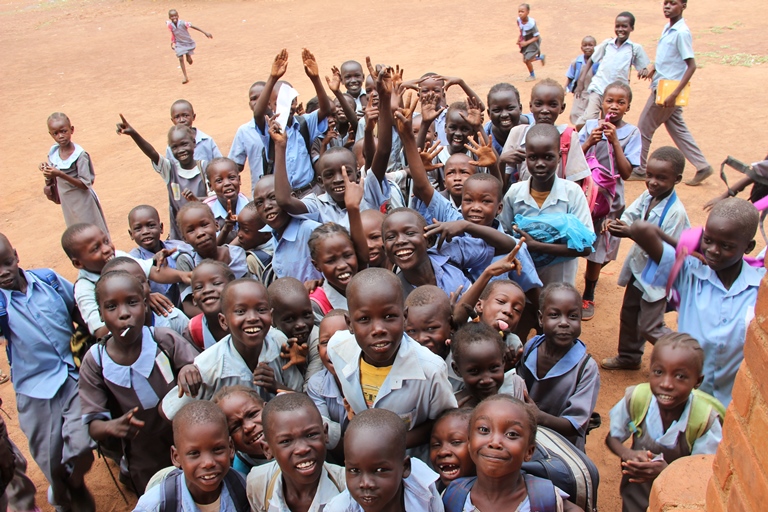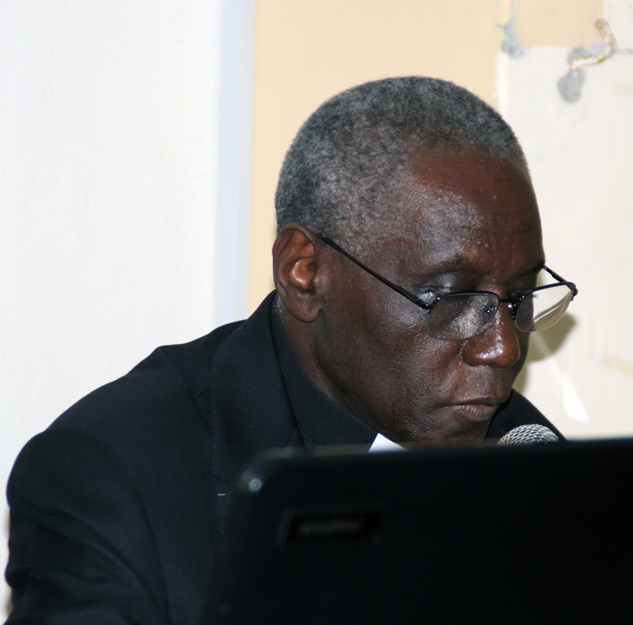|
The missionary vocation of the Church in Africa
Tuesday, April 18, 2017
"The African Church can humbly offer the West the marvels that God has worked in her through the Holy Spirit, and the tribulations that Jesus continues to endure in the sufferings and material needs of his faithful there."
The
missionary vocation of the Church in Africa
In an interview with the international
Catholic charity Aid to the Church in Need (ACN), the Prefect of the
Congregation for Divine Worship, Cardinal Robert Sarah, speaks about the
contribution of the Church in Africa to the Universal Church, about Islam in
Africa and the world, about relations between the Church and politics and the
challenges facing the Church in Africa. The cardinal insists that "the
Church needs unity of faith, unity of doctrine, unity of moral teaching. It
needs the primacy of the Pope."
By Jürgen Liminski
What is the relationship
between the African Church and the Universal Church?
Your question, as you put it to me, presents me
with something of a difficulty, because in reality the Church here in Africa is
part of the Universal Church and thus forms together with it a sole and single
Church. Hence there is no such thing As an "African Church" and, as
distinct from it, a "Universal Church". Your question makes it appear
as if ecclesiology depends on a communion between the Churches, and in this you
are correct. Nonetheless, we need to remember that the Universal Church is not
a sort of federation of local churches. The Universal Church is symbolized and
represented by the Church of Rome, with the Pope at its head, the successor of
Saint Peter and the head of the apostolic college; hence it is she who has
given birth to all the local churches and she who sustains them in the unity of
faith and love. As Saint Ignatius of Antioch tells us (circa 110 AD) the Church
of Rome is the “All-pure Church which presides in charity.” Thus it is the
profession of our common faith and our fidelity to Christ and his Gospel, in
union with the Pope, that enables the Church to live in communion.
Is this absolutely essential in order to avoid
confusion? Can there not also exist national Churches ?
Without a common faith, the Church is threatened
by confusion and then, progressively, she can slide into dispersion and schism.
Today there is a grave risk of the fragmentation of the Church, of breaking up
the Mystical Body of Christ by insisting on the national identities of the
Churches and thus on their capacity to decide for themselves, above all in the so
crucial domain of doctrine and morals. As Pope Benedict XVI tells us: “It is
clear that a Church does not grow by becoming individualised, by separating on
a national level, by closing herself off within a specific cultural context, by
giving herself an entirely cultural or national scope; instead the Church needs
to have unity of faith, unity of doctrine, unity of moral teaching. She needs
the primacy of the Pope, and his mission to confirm the faith of his brethren.”
Besides, Africa has always considered and seen the Church as a family, the
family of God.

And what is the contribution
of the Church in Africa to the Universal Church today?
In this we are faithful to the ecclesiology of
the Epistle to the Ephesians: “So then you are no longer strangers and aliens,
but you are fellow citizens with the saints and members of the household of
God” (Eph 2:19). And even though the Church in Northern Africa is very ancient,
yet today the Church in sub-Saharan Africa, sees herself as the missionary
fruit and the daughter of the Churches of the West. She still needs to be able
to rely on the theological, liturgical, spiritual and in particular the
monastic experience, and also on the financial support of the Churches of the
ancient Christianity of the West. For her part the Church that is in Africa can
humbly offer the West the marvels that God has worked in her through the Holy
Spirit, and the tribulations that Jesus continues to endure in the sufferings
and material needs of his faithful there.
What are the needs of the Church in Africa?
They are many: disease, wars, hunger, the
critical lack of educational and healthcare structures. And then there are the
toxic temptations of Western-born ideologies – communism, gender ideology... Africa
has become the dumping ground of contraceptive products, of weapons of mass
destruction. And she is also the scene of the organised theft of primary
mineral recources: it is to this end that they organize and plan the wars and
foster disorder on the African continent. So it is that they exploit her
natural resources in the absence of any rules or laws. The world economic
powers must stop pillaging the poor. They take advantage of their poverty and
lack of education, and their own technology and financial wealth, in order to
foment wars and loot the natural riches of the weaker nations without financial
resources.
Does Islam represent a threat to the survival of
the Catholic Church in Africa?
For many centuries sub-Saharan Islam has
coexisted peacably and harmoniously with Christianity. On the other hand the
Islam that takes the form of a political organization, intent on imposing
itself on the whole world, is indeed a threat, and not just to Africa. In fact
it is above all a threat to the societies of the European continent which too
often no longer have a true identity or a religion. Those who deny the values
of their own tradition, culture and religion are condemned to disappear, for
they have lost all their motivation, all their energy and even all the will to
fight to defend their own identity.
In what way can ACN, as a pontifical foundation,
still better help the Church in Africa?
Today all the charitable organizations, even the
Catholic ones, are focused unilaterally and exclusively on addressing
situations of material poverty, but “man
does not live by bread alone, but on every word that comes from the mouth of
God”, as Jesus tells us (cf. Mt 4:4). I therefore encourage ACN to give aid
for the formation of priests, seminarians, male and female religious, for
catechists, for the construction of churches and seminaries and for spiritual
retreats for bishops and priests. I humbly beg all the friends and benefactors
of ACN to continue generously supporting the great missionary work of ACN
throughout the world and particularly in Africa. For it is true that those
bishops and priests who do not take the time – at least for a few days – to
place themselves in the presence of God in solitude, silence and prayer, risk
dying on the spiritual level, or at the very least, drying out spiritually
within. For they will no longer be capable of providing solid spiritual
nourishment to the faithful entrusted to them if they themselves do not draw
strength from the Lord in a regular and constant manner.

Should we also speak of the political problems?
The Church is gravely mistaken as to the nature
of the real crisis if she thinks that her essential mission is to offer
solutions to all the political problems relating to justice, peace, poverty,
the reception of migrants, etc. while neglecting evangelisation. Certainly,
like Christ, the Church cannot disassociate herself from the human problems.
Besides, she has always helped here through her schools, her universities, her
training centres, her hospitals and dispensaries... Nonetheless, I would like
to cite to you the words of an Italian who has converted to Islam (and there
are over a hundred thousand like him in Italy). His name is Yahya Pallavicini,
and today he is an imam, the President of
CO.RE.IS (the Islamic Religious Community) and a
professor at the Catholic University of Milan: “If the Church, with the obsession she has
today with the values of justice, social rights and the struggle against
poverty, ends up as a result by forgetting her contemplative soul, she will
fail in her mission and she will be abandoned by a great many of her faithful,
owing to the fact that they will no longer recognize in her what constitutes
her specific mission.”
School children in Wau, South Sudan; Cardinal Sarah; ACN photos
|
|
|